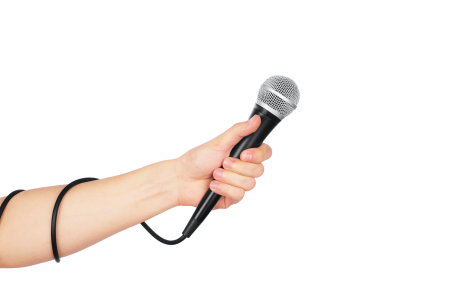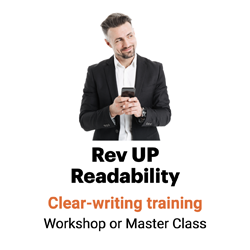3 ways to get good at getting the goods
You’ve heard the phrase “hog in, sausage out.”

To get good at getting the goods, conduct three kinds of research:
1. Background research
Before heading to the interview, spend some quality time with your BFFs and research assistants, Google and ChatGPT. You might:
- Define a term. Search for “define:[TERM] in Google. I once found a cochlear implant compared to a bionic ear and was able to use that analogy — though not, obviously, those words — in my article.
- Find a data point. I recently wrote a lead for a client in the utilities business on severe weather using stats I uncovered via ChatGPT. (Of course, you are not a New York lawyer at a court hearing; you will check the facts you get from ChatGPT before using them.)
- Get an explanation. I love HowStuffWorks.com for technical ‘splainers. #BecauseSometimesIDon’tUnderstandEngineers.
This is also a great place to get questions for the interview. My sister asked ChatGPT for questions to ask retailers on a conference panel. The results were nuanced and fascinating.
2. Interview
When you nail down the facts in your background research, you can use the interview to add humanity and detail to the story. Instead of covering the five 5 W’s, look for anecdotes, analogies and compelling quotes.
Ask questions that get to:
- Story. Ask “when” questions that go to moments of pain, moments of change, moments of crisis and moments of decision. That’s where the stories are.
- Examples. For a blog post on how to get rich slowly, I found all the information I needed online. So I was able to devote the interview to getting examples. I left with stories of a college dropout who started a software company, married teachers who lived on his paycheck and invested hers, and more.
- Color. “Get the name of the dog,” says the Poynter Institute’s Roy Peter Clark. Use the interview to make sure you can name names and number numbers.
3. Observational research
Try WBHA, or writing by hanging around. Being there adds color and detail to your message. So go to the scene and observe.
- Ask for a demo. One of my students was writing a post about an autistic adult who was the top salesperson at his company. I suggested she ask him to sell to her via Zoom.
- Go someplace. I once joined a billionaire for lunch in his company’s cafeteria. He ate a brown-bag peanut-butter sandwich while I, a non-billionaire, paid for cafeteria food.
- Be on hand. My team got to observe a cochlear-implant surgery for a health system blog post. We saw a father and daughter hear each other say “I love you” for the first time in decades.
Get good at getting the goods.
“Without great reporting, a story is like one big comb-over,” writes Ann Hull, Pulitzer Prize-winning reporter for The Washington Post. “You can see it from the third paragraph.”
Make sure your message can’t be compared to a comb-over. Get good at research and information gathering.

Leave a Reply